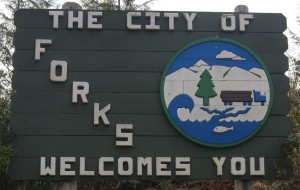Latest News
- Election of ISA Secretary-General mired by accusations of bribery and corruption
- International Seabed Authority gears up for a leadership challenge at the July meeting.
- No, the ship didn’t steer towards the pylon: A brief fact check on the MV Dali collision with Baltimore’s Key Bridge
- New Deep-sea Mining Bill Introduced in Congress
- NOAA confirms North Atlantic Right Whale killed by commercial lobster gear
- Norway moves one step closer to deep-sea mining
[{"id":55855,"link":"https:\/\/www.southernfriedscience.com\/this-rum-protects-the-ocean-the-worlds-first-conservation-distillery-is-open-for-business\/","name":"this-rum-protects-the-ocean-the-worlds-first-conservation-distillery-is-open-for-business","thumbnail":{"url":"https:\/\/www.southernfriedscience.com\/wp-content\/uploads\/2024\/11\/465662061_543266475233954_5158712234421682914_n.jpg","alt":""},"title":"This Rum Protects the Ocean: the world's first conservation distillery is open for business.","excerpt":"","content":"Five years ago, a small team of ocean scientists, conservationists, sea turtle patrollers, and distillers","author":{"name":"Andrew Thaler","link":"https:\/\/www.southernfriedscience.com\/author\/southern-fried-scientist\/"},"date":"Nov 15, 2024","dateGMT":"2024-11-15 16:54:22","modifiedDate":"2024-11-15 12:16:00","modifiedDateGMT":"2024-11-15 17:16:00","commentCount":"0","commentStatus":"closed","categories":{"coma":"<a href=\"https:\/\/www.southernfriedscience.com\/category\/conservation\/\" rel=\"category tag\">Conservation<\/a>, <a href=\"https:\/\/www.southernfriedscience.com\/category\/featured\/\" rel=\"category tag\">Featured<\/a>","space":"<a href=\"https:\/\/www.southernfriedscience.com\/category\/conservation\/\" rel=\"category tag\">Conservation<\/a> <a href=\"https:\/\/www.southernfriedscience.com\/category\/featured\/\" rel=\"category tag\">Featured<\/a>"},"taxonomies":{"post_tag":"<a href='https:\/\/www.southernfriedscience.com\/tag\/rum\/' rel='post_tag'>Rum<\/a><a href='https:\/\/www.southernfriedscience.com\/tag\/sea-turtles\/' rel='post_tag'>sea turtles<\/a><a href='https:\/\/www.southernfriedscience.com\/tag\/sperm-whales\/' rel='post_tag'>sperm whales<\/a>"},"readTime":{"min":1,"sec":29},"status":"publish"},{"id":55829,"link":"https:\/\/www.southernfriedscience.com\/giant-tube-worms-dwell-in-the-deep-places-beneath-the-ocean-floor\/","name":"giant-tube-worms-dwell-in-the-deep-places-beneath-the-ocean-floor","thumbnail":{"url":"https:\/\/www.southernfriedscience.com\/wp-content\/uploads\/2024\/10\/BeneathTheVents.jpg","alt":""},"title":"Giant tube worms dwell in the deep places beneath the ocean floor.","excerpt":"","content":"Giant deep-sea tube worms. When the RV Knorr arrived above Galapagos Rift in 1977, a","author":{"name":"Andrew Thaler","link":"https:\/\/www.southernfriedscience.com\/author\/southern-fried-scientist\/"},"date":"Oct 18, 2024","dateGMT":"2024-10-18 16:44:40","modifiedDate":"2024-10-30 09:32:58","modifiedDateGMT":"2024-10-30 13:32:58","commentCount":"0","commentStatus":"closed","categories":{"coma":"<a href=\"https:\/\/www.southernfriedscience.com\/category\/featured\/\" rel=\"category tag\">Featured<\/a>, <a href=\"https:\/\/www.southernfriedscience.com\/category\/science\/\" rel=\"category tag\">Science<\/a>","space":"<a href=\"https:\/\/www.southernfriedscience.com\/category\/featured\/\" rel=\"category tag\">Featured<\/a> <a href=\"https:\/\/www.southernfriedscience.com\/category\/science\/\" rel=\"category tag\">Science<\/a>"},"taxonomies":{"post_tag":"<a href='https:\/\/www.southernfriedscience.com\/tag\/art\/' rel='post_tag'>art<\/a><a href='https:\/\/www.southernfriedscience.com\/tag\/deep-biosphere\/' rel='post_tag'>deep biosphere<\/a><a href='https:\/\/www.southernfriedscience.com\/tag\/hydrothermal-vents\/' rel='post_tag'>hydrothermal vents<\/a><a href='https:\/\/www.southernfriedscience.com\/tag\/microbes\/' rel='post_tag'>Microbes<\/a><a href='https:\/\/www.southernfriedscience.com\/tag\/riftia-pachyptila\/' rel='post_tag'>Riftia pachyptila<\/a><a href='https:\/\/www.southernfriedscience.com\/tag\/tube-worms\/' rel='post_tag'>tube worms<\/a>"},"readTime":{"min":4,"sec":32},"status":"publish"},{"id":55821,"link":"https:\/\/www.southernfriedscience.com\/6-ways-to-support-the-america-the-beautiful-for-all-coalition\/","name":"6-ways-to-support-the-america-the-beautiful-for-all-coalition","thumbnail":{"url":"https:\/\/www.southernfriedscience.com\/wp-content\/uploads\/2024\/10\/WhatsApp-Image-2024-10-07-at-10.31.41-AM.jpeg","alt":"natives from puerto rico and mariana islands pose for a photo"},"title":"6 Ways to Support the America the Beautiful for All Coalition","excerpt":"","content":"The membership of the America the Beautiful for All coalition stretches from the Marianas to","author":{"name":"Angelo Villagomez","link":"https:\/\/www.southernfriedscience.com\/author\/buckyvillagomez\/"},"date":"Oct 7, 2024","dateGMT":"2024-10-07 14:42:11","modifiedDate":"2024-10-09 08:47:34","modifiedDateGMT":"2024-10-09 12:47:34","commentCount":"0","commentStatus":"closed","categories":{"coma":"<a href=\"https:\/\/www.southernfriedscience.com\/category\/conservation\/\" rel=\"category tag\">Conservation<\/a>, <a href=\"https:\/\/www.southernfriedscience.com\/category\/featured\/\" rel=\"category tag\">Featured<\/a>, <a href=\"https:\/\/www.southernfriedscience.com\/category\/policy\/\" rel=\"category tag\">Policy<\/a>","space":"<a href=\"https:\/\/www.southernfriedscience.com\/category\/conservation\/\" rel=\"category tag\">Conservation<\/a> <a href=\"https:\/\/www.southernfriedscience.com\/category\/featured\/\" rel=\"category tag\">Featured<\/a> <a href=\"https:\/\/www.southernfriedscience.com\/category\/policy\/\" rel=\"category tag\">Policy<\/a>"},"taxonomies":{"post_tag":""},"readTime":{"min":4,"sec":22},"status":"publish"},{"id":55803,"link":"https:\/\/www.southernfriedscience.com\/comparing-the-openctd-to-a-ysi-castaway\/","name":"comparing-the-openctd-to-a-ysi-castaway","thumbnail":{"url":"https:\/\/www.southernfriedscience.com\/wp-content\/uploads\/2024\/09\/PXL_20240905_162511148-scaled.jpg","alt":""},"title":"Comparing the OpenCTD to a YSI Castaway","excerpt":"","content":"For close to two decades now, the venerable YSI Castaway has been the gold standard","author":{"name":"Andrew Thaler","link":"https:\/\/www.southernfriedscience.com\/author\/southern-fried-scientist\/"},"date":"Sep 21, 2024","dateGMT":"2024-09-21 19:11:27","modifiedDate":"2024-09-21 15:16:44","modifiedDateGMT":"2024-09-21 19:16:44","commentCount":"0","commentStatus":"closed","categories":{"coma":"<a href=\"https:\/\/www.southernfriedscience.com\/category\/education\/\" rel=\"category tag\">Education<\/a>, <a href=\"https:\/\/www.southernfriedscience.com\/category\/featured\/\" rel=\"category tag\">Featured<\/a>, <a href=\"https:\/\/www.southernfriedscience.com\/category\/oceanography-for-everyone\/\" rel=\"category tag\">Oceanography for Everyone<\/a>","space":"<a href=\"https:\/\/www.southernfriedscience.com\/category\/education\/\" rel=\"category tag\">Education<\/a> <a href=\"https:\/\/www.southernfriedscience.com\/category\/featured\/\" rel=\"category tag\">Featured<\/a> <a href=\"https:\/\/www.southernfriedscience.com\/category\/oceanography-for-everyone\/\" rel=\"category tag\">Oceanography for Everyone<\/a>"},"taxonomies":{"post_tag":"<a href='https:\/\/www.southernfriedscience.com\/tag\/openctd\/' rel='post_tag'>OpenCTD<\/a>"},"readTime":{"min":2,"sec":3},"status":"publish"},{"id":55787,"link":"https:\/\/www.southernfriedscience.com\/jumping-the-shark-new-study-reviews-the-breaching-behavior-of-sharks-and-rays\/","name":"jumping-the-shark-new-study-reviews-the-breaching-behavior-of-sharks-and-rays","thumbnail":{"url":"https:\/\/www.southernfriedscience.com\/wp-content\/uploads\/2024\/09\/3.jpg","alt":""},"title":"Jumping the shark: New study reviews the breaching behavior of sharks and rays","excerpt":"","content":"One of the most iconic images of shark behavior is a great white shark hitting","author":{"name":"David Shiffman","link":"https:\/\/www.southernfriedscience.com\/author\/whysharksmatter\/"},"date":"Sep 19, 2024","dateGMT":"2024-09-19 15:48:02","modifiedDate":"2024-09-20 10:26:40","modifiedDateGMT":"2024-09-20 14:26:40","commentCount":"0","commentStatus":"closed","categories":{"coma":"<a href=\"https:\/\/www.southernfriedscience.com\/category\/featured\/\" rel=\"category tag\">Featured<\/a>, <a href=\"https:\/\/www.southernfriedscience.com\/category\/science\/\" rel=\"category tag\">Science<\/a>","space":"<a href=\"https:\/\/www.southernfriedscience.com\/category\/featured\/\" rel=\"category tag\">Featured<\/a> <a href=\"https:\/\/www.southernfriedscience.com\/category\/science\/\" rel=\"category tag\">Science<\/a>"},"taxonomies":{"post_tag":"<a href='https:\/\/www.southernfriedscience.com\/tag\/blacktip-shark\/' rel='post_tag'>blacktip shark<\/a><a href='https:\/\/www.southernfriedscience.com\/tag\/breaching\/' rel='post_tag'>breaching<\/a><a href='https:\/\/www.southernfriedscience.com\/tag\/great-white-shark\/' rel='post_tag'>great white shark<\/a><a href='https:\/\/www.southernfriedscience.com\/tag\/sharks\/' rel='post_tag'>sharks<\/a><a href='https:\/\/www.southernfriedscience.com\/tag\/thresher-shark\/' rel='post_tag'>thresher shark<\/a><a href='https:\/\/www.southernfriedscience.com\/tag\/why-do-great-white-sharks-jump\/' rel='post_tag'>why do great white sharks jump<\/a><a href='https:\/\/www.southernfriedscience.com\/tag\/why-do-sharks-jump\/' rel='post_tag'>why do sharks jump<\/a>"},"readTime":{"min":4,"sec":12},"status":"publish"},{"id":55775,"link":"https:\/\/www.southernfriedscience.com\/resources-for-donald-trumps-project-2025-and-the-environment\/","name":"resources-for-donald-trumps-project-2025-and-the-environment","thumbnail":{"url":"https:\/\/www.southernfriedscience.com\/wp-content\/uploads\/2024\/08\/download.jpg","alt":""},"title":"Resources for Donald Trump's Project 2025 and the Environment","excerpt":"","content":"Donald Trump\u2019s Project 2025 is an extreme MAGA policy blueprint that aims to reshape the","author":{"name":"Angelo Villagomez","link":"https:\/\/www.southernfriedscience.com\/author\/buckyvillagomez\/"},"date":"Aug 7, 2024","dateGMT":"2024-08-07 14:04:41","modifiedDate":"2024-08-07 10:04:41","modifiedDateGMT":"2024-08-07 14:04:41","commentCount":"0","commentStatus":"closed","categories":{"coma":"<a href=\"https:\/\/www.southernfriedscience.com\/category\/featured\/\" rel=\"category tag\">Featured<\/a>, <a href=\"https:\/\/www.southernfriedscience.com\/category\/policy\/\" rel=\"category tag\">Policy<\/a>","space":"<a href=\"https:\/\/www.southernfriedscience.com\/category\/featured\/\" rel=\"category tag\">Featured<\/a> <a href=\"https:\/\/www.southernfriedscience.com\/category\/policy\/\" rel=\"category tag\">Policy<\/a>"},"taxonomies":{"post_tag":""},"readTime":{"min":3,"sec":40},"status":"publish"}]





